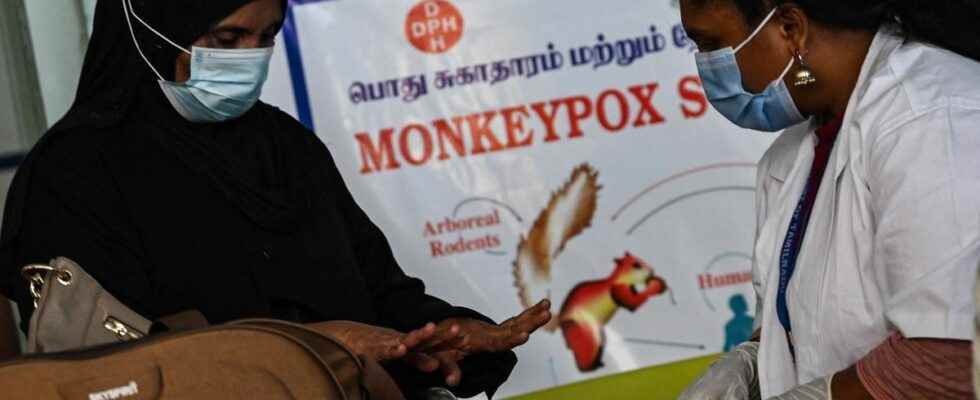Published ,
Reading 2 mins.
Monkeypox, which now extends to some 40 countries after being contained in Africa for a long time, will soon have a different name.
The World Health Organization (WHO) intends to change its name, deemed misleading and discriminatory.
The WHO is thinking about “change virus name“monkey pox,” World Health Organization Director General Tedros Adhanom Ghebreyesus said last week, promising “announcements as soon as possible” on this point.
Beyond the single virus, it would also and above all be a question of modifying the name of its different strains, as well as that of the disease itself.
Why this change, at a time when monkeypox has been spotted in more than 40 countries and could soon be considered an international emergency by the WHO?
The latter did not openly explain the reasons for its decision, but it would come after multiple concerns about stigmatizing terms for African countries.
This consideration concerns above all the strains of the virus. They are indeed named after regions or countries in Africa: we speak of the strain of West Africa and that of the Congo Basin, the second being much more deadly than its cousin.
At the beginning of June, about thirty scientists, many from Africa, thus wrote a forum to ask to change these names, judging it urgent to put in place “a nomenclature that is neither discriminatory nor stigmatizing“.
A new name would acknowledge the current reality of the disease. While this was for a long time limited to ten African countries, 84% of new cases were detected this year in Europe and 12% on the American continent.
Why, then, not just change the name of the strains and continue to talk about “monkey pox“? First because it’s misleading.
Unhappy Associations
The current outbreak shows that the new strain is transmitted more easily from one human to another, compared to what is observed in Africa where the recorded cases most often come from contamination by an animal.
Especially, even originally, “It’s not really a disease related to monkeys“, notes virologist Oyewale Tomori to AFP.
This name is the legacy of the conditions in which the disease was discovered in the 1950s: Danish researchers had discovered it in monkeys in their laboratory. But, in real life, it is usually caught from rodents.
Alongside this misleading side, there are, again, concerns about the stigmatizing nature of such a name.
“Monkeys are generally associated with southern countries, especially Africa“, recalls on the site The Conversation the researcher Moses John Bockarie.
These concerns are part of a broader context where Africa has frequently been targeted as the source of diseases that have spread around the world.
“We especially saw that with AIDS in the 1980s, Ebola during the 2013 epidemic, then with Covid and the supposed + South African variants +“, remarks to AFP epidemiologist Oliver Restif.
As such, the image is also important. Mr. Restif regrets that the media have often chosen unfortunate illustrations for their articles on monkeypox.
It is often “old photographs of African patients”, while current cases “are much less serious“, he notes.
